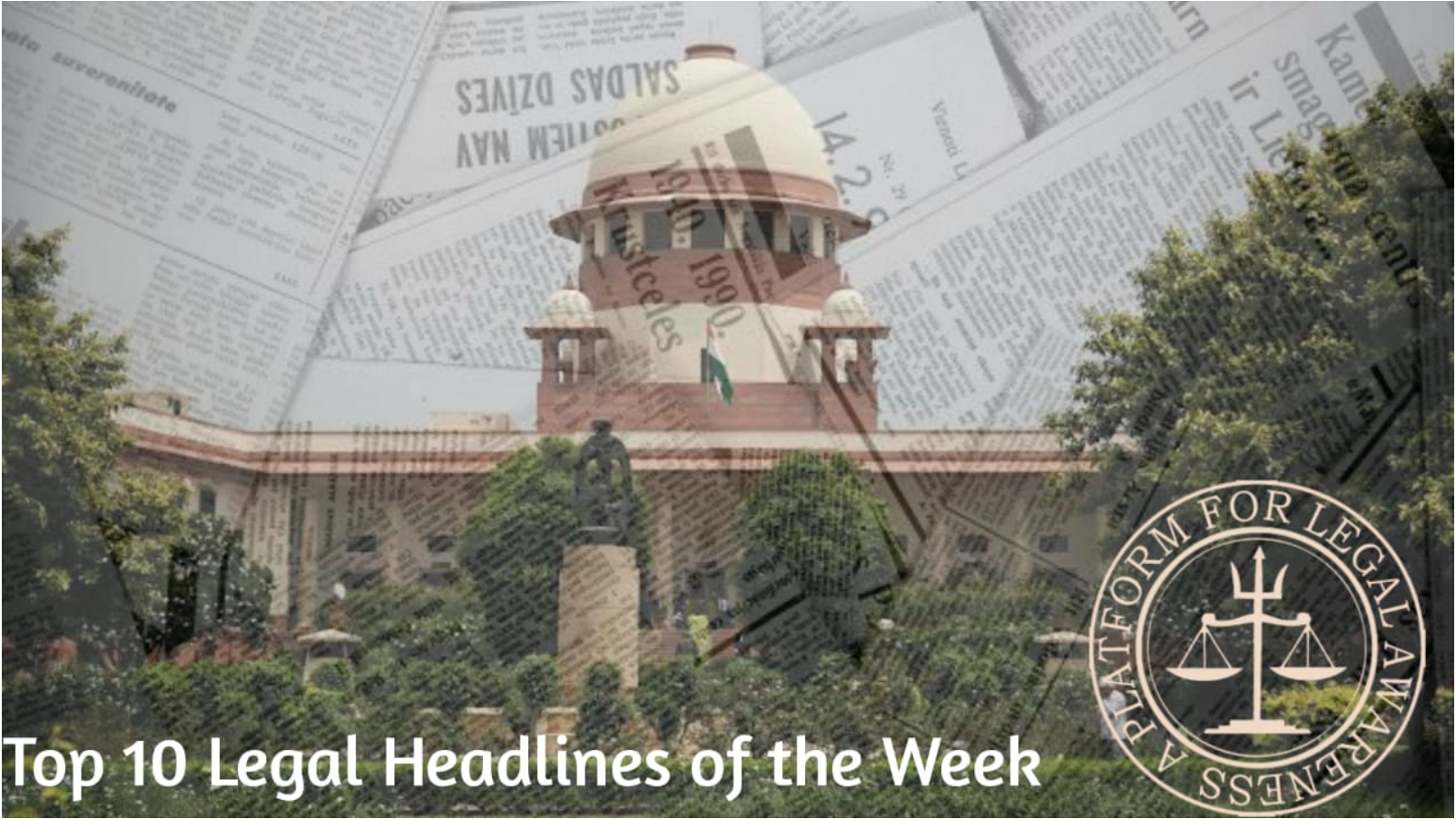1. Mild Taunts by In-Laws Not Cruelty Under 498A IPC: Supreme Court
The Supreme Court recently quashed criminal proceedings against the in-laws of a woman who filed a Section 498A IPC complaint after receiving a divorce summons. The Court observed that minor taunts or disagreements within a family do not amount to "cruelty" under the law. It cautioned lower courts to be careful while taking such allegations at face value, especially when divorce proceedings are ongoing, highlighting the need to distinguish between serious abuse and normal familial discord.
2. Supreme Court to Decide if Match-Fixing is a Criminal Offence
The Supreme Court is set to examine whether match-fixing constitutes a criminal offence under Indian law. The case arises from the Karnataka High Court's ruling that fixing a cricket match does not amount to cheating under the Indian Penal Code (IPC). The decision will have significant implications for the legal treatment of corruption in sports, particularly in light of allegations surrounding the Karnataka Premier League fixing scandal.
3. Supreme Court Commutes Death Sentence of Man Convicted of Brutal Family Murders
The Supreme Court on Tuesday commuted the death penalty of Reji Kumar, convicted of raping his minor daughter and murdering his wife and four children. While acknowledging the horrific nature of the crimes, the Court cited Kumar’s unblemished conduct in jail, his mental health history, and efforts at reformation as grounds to spare him the death penalty. The Court emphasised that even the most brutal offenders must be assessed for potential rehabilitation before imposing the harshest punishment.
4. Arbitral Award Unenforceable if Claims Not in Resolution Plan: Supreme Court
The Supreme Court ruled that an arbitral award issued after the NCLT approves an insolvency resolution plan is unenforceable if the related claims were not part of the approved plan. The Court emphasised that once a resolution plan is sanctioned, all prior claims not incorporated into it stand extinguished under the Insolvency and Bankruptcy Code (IBC). The ruling clarifies the finality and binding nature of resolution plans on all stakeholders.
5. Supreme Court Criticises Kerala High Court for Quashing POCSO Cases Against Teacher
The Supreme Court on Wednesday expressed disappointment over the Kerala High Court’s decision to quash POCSO Act cases against a school computer teacher accused of repeated sexual harassment of female students. Hearing a plea challenging the High Court's order, the apex court called the handling of the sensitive case "insensitive" and stressed the need for courts to exercise greater care in matters involving protecting children’s rights.
6. Muslim Bar Council Member’s Term on Waqf Board Ends with Bar Council Tenure: Supreme Court
The Supreme Court ruled that a Muslim member of a State Bar Council appointed to a State Waqf Board cannot continue on the Board after their Bar Council term ends. The Court clarified that only if there is no serving Muslim member or available Senior Muslim advocate in the Bar Council can a former member be considered for Waqf Board membership, emphasising strict adherence to the statutory requirements.
7. Families Shouldn't Suffer for Accusations: Supreme Court on Bullying of NDPS Accused's Children
The Supreme Court on Thursday expressed concern over the harassment faced by the children of a man accused under the NDPS Act, who was falsely linked to the recent Pahalgam terror attack. Emphasising that no family member should suffer due to allegations against an individual, whether proven or not, the Court highlighted the need to protect innocent families from social stigma and bullying.
8. Centre Defends Waqf Amendment Act in Supreme Court, Emphasises Inclusivity
The Centre defended the Waqf (Amendment) Act, 2025, before the Supreme Court, asserting that the inclusion of non-Muslims in Waqf Boards was aimed at fostering inclusivity. The government argued that the amendments were necessary to curb the misuse of Waqf provisions, which were exploited to encroach on private and government properties. The Centre further clarified that the Waqf Act should not be compared to Hindu Endowments, as it serves a distinct purpose within the legal and religious framework.
9. Supreme Court Reprimands Rahul Gandhi for Remarks on Savarkar, Stays Summons
The Supreme Court on Friday reprimanded Leader of Opposition, Rahul Gandhi, for his remarks accusing Vinayak Damodar Savarkar of being a British collaborator who received a pension from the British. The Court warned Gandhi that it would initiate suo motu action if similar statements were made in the future. However, the Court stayed the summons issued against him in the case, allowing some time for the matter to be addressed.
10. Supreme Court Proposes Vote Threshold for Unopposed Election Wins
The Supreme Court suggested introducing a minimum vote threshold for candidates in unopposed elections. The proposal, made during a hearing of a petition challenging Section 53(2) of the Representation of the People Act,1951, would require a lone candidate to secure a certain percentage of total votes cast to be declared elected. Justice Surya Kant raised concerns over allowing candidates to enter Parliament without receiving adequate electoral support, proposing that candidates obtain at least 10% of the votes to avoid default wins.

